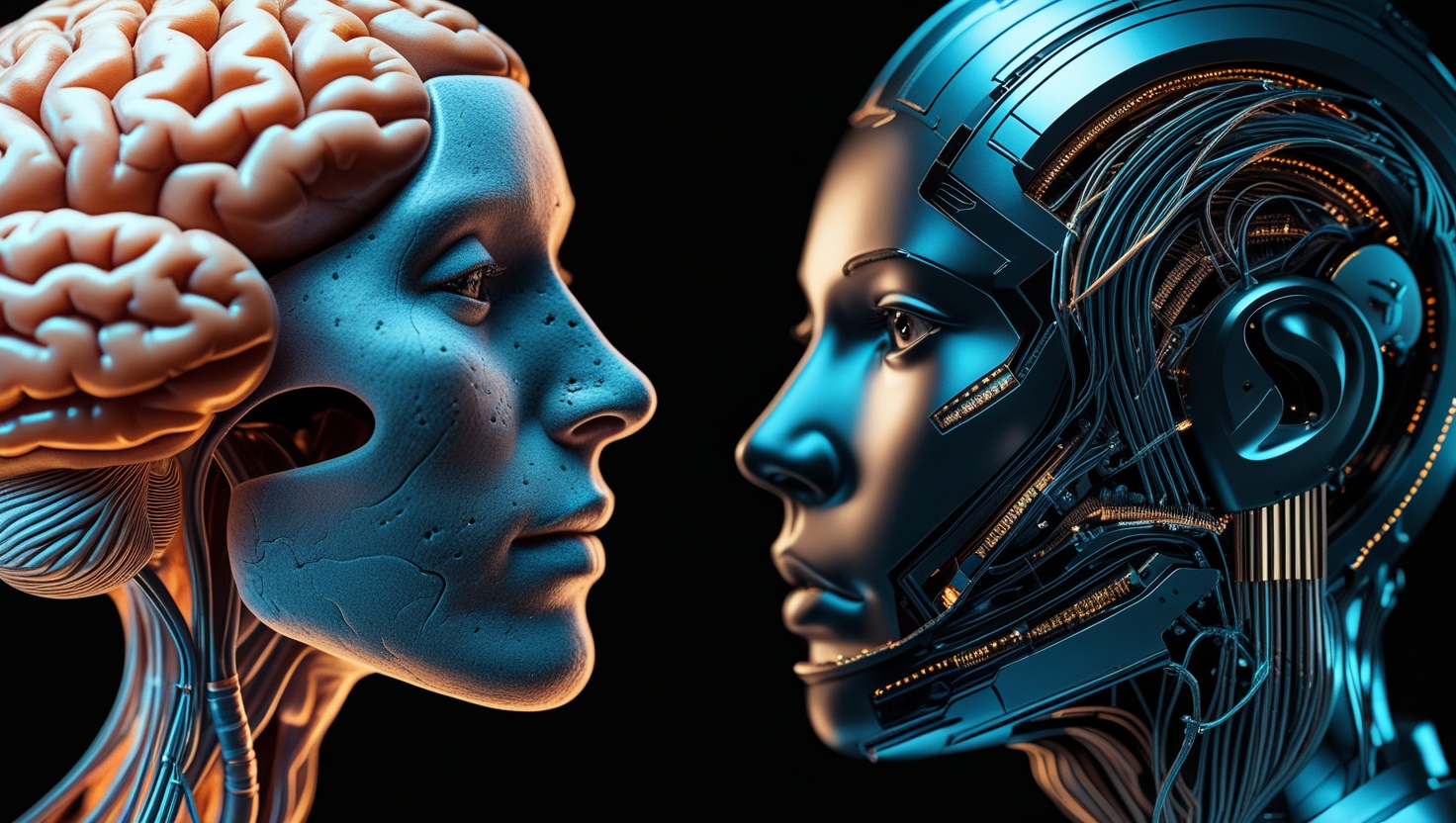The Brain vs. The Machine: A Tale of Two Intelligences
For centuries, the human brain reigned supreme as the pinnacle of intelligence. Its intricate networks, capable of everything from composing symphonies to solving complex equations, seemed unparalleled. Then came Artificial Intelligence, and suddenly, the conversation shifted. Is AI destined to surpass us, or are our biological brains still in a league of their own?
It's tempting to frame this as a battle, but perhaps it's more productive to see it as a comparison of fundamentally different, yet increasingly complementary, forms of intelligence.
The Human Brain: A Masterpiece of Intuition and Adaptability
Our brains are slow compared to the lightning-fast calculations of a computer, yet they excel in areas where AI often struggles. Think about:
Intuition and Creativity: AI can generate art and music, but it often does so by processing vast datasets of existing works. True human creativity often springs from abstract thought, emotion, and unpredictable leaps of insight.
Context and Common Sense: We effortlessly navigate the nuances of social interactions, understand sarcasm, and make decisions based on incomplete information – all thanks to a deeply ingrained common sense that AI is still developing.
Learning with Less Data: A child can learn to recognize a cat after seeing just a few examples. Many AI models require millions of data points to achieve similar recognition.
Emotional Intelligence: Empathy, compassion, and understanding human emotions are uniquely human traits that drive our decision-making and social structures.
Artificial Intelligence: The Power of Speed and Scale
AI's strengths lie in its ability to process and analyze vast quantities of data at incredible speeds, and to perform repetitive tasks with unfailing accuracy. Consider:
The Future: Collaboration, Not Competition
Instead of a winner-takes-all scenario, the future likely involves a powerful synergy. AI can augment human capabilities, taking over tedious tasks, providing data-driven insights, and even helping us understand the complexities of our own brains. Humans, in turn, provide the creativity, ethical frameworks, and emotional intelligence that guide AI's development and application.
The human brain, with its rich tapestry of experiences and its capacity for genuine understanding, remains irreplaceable. But AI is an invaluable tool, expanding our reach and accelerating our progress in ways we are only just beginning to comprehend. The most exciting discoveries will likely come from the intelligent collaboration between these two remarkable forms of intelligence.






